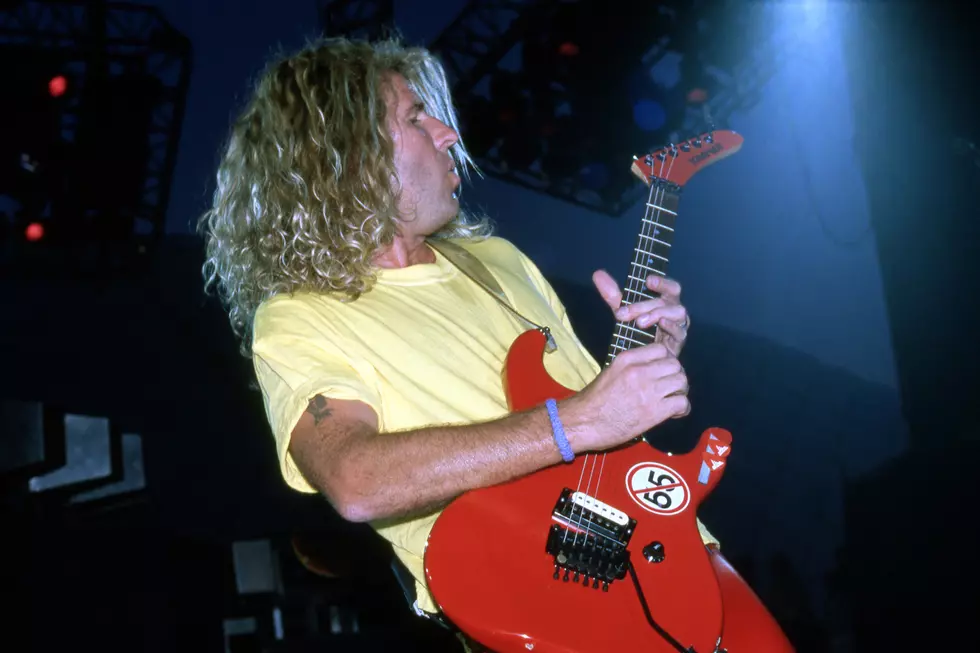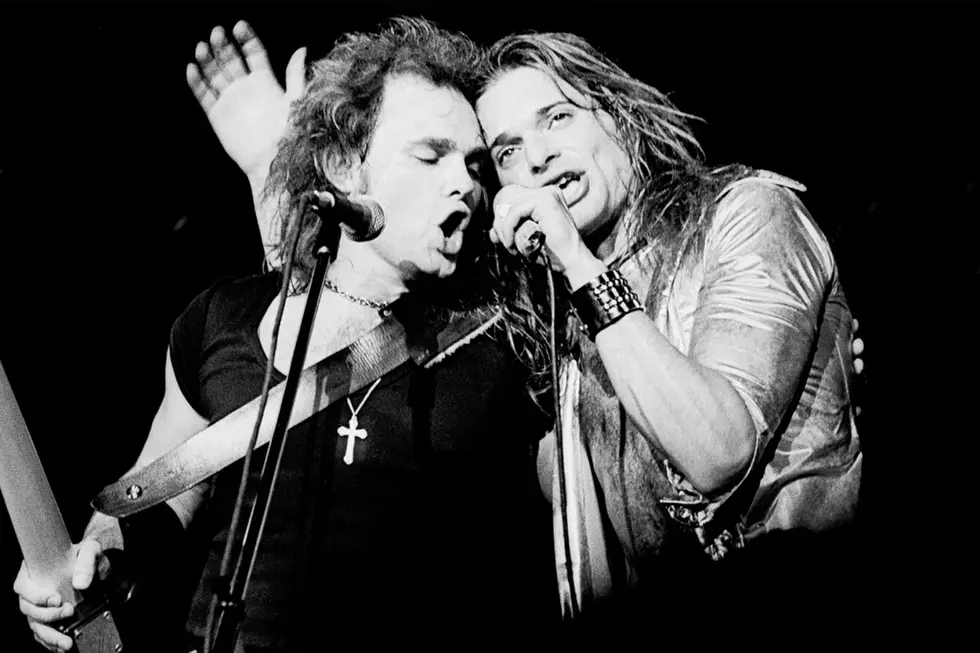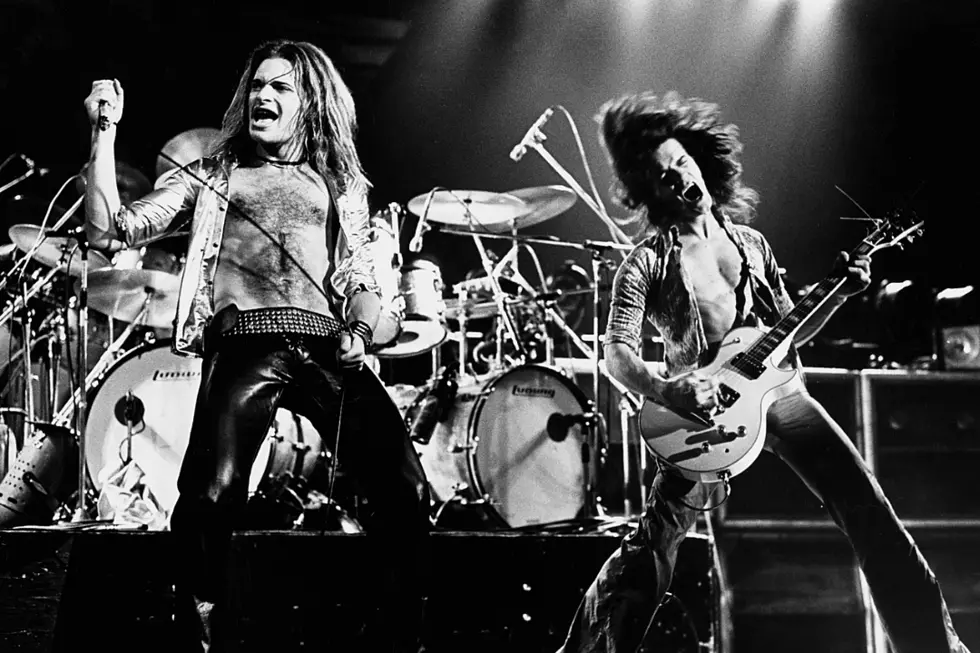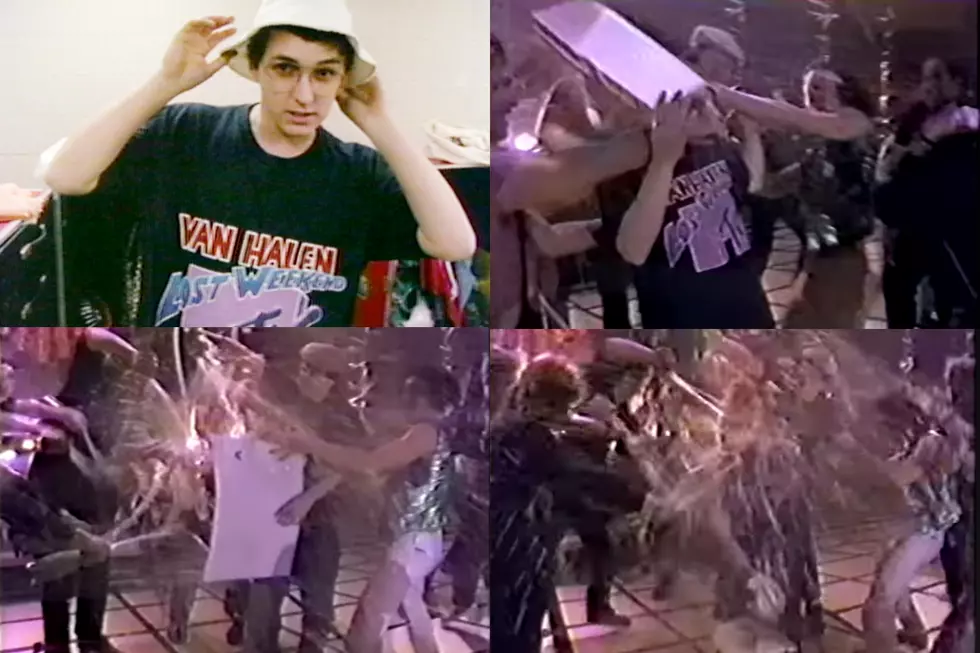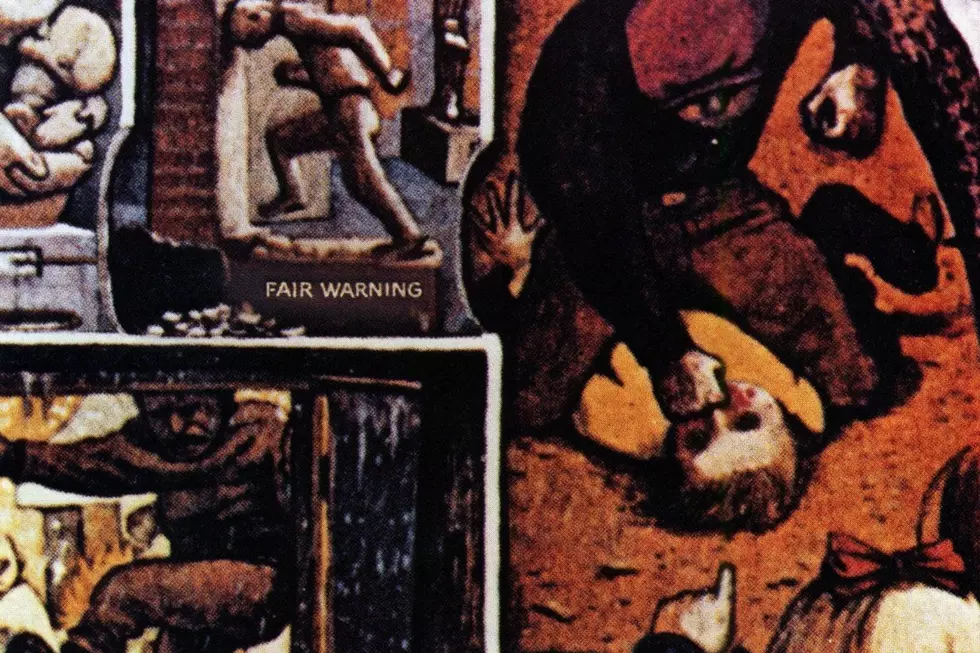
When Van Halen Became Dark and Aggressive on ‘Fair Warning’
Van Halen was well on their way to becoming one of the world's biggest rock bands as they entered the studio to record their fourth album. Yet inside the group, creative tensions were already running high.
Like many young artists, guitarist Eddie Van Halen felt constrained by his own success as the group bore down on what would become their fourth LP, 1981's Fair Warning. Eager to send Van Halen's new music in different directions, he chafed against the resistance he felt he faced — primarily from singer David Lee Roth, who Eddie saw as being overly committed to keeping the band's records safely commercial, and producer Ted Templeman, whose insistence on maintaining a live aesthetic prevented much in the way of studio experimentation.
To work around those obstacles, Van Halen took his first steps toward claiming a greater degree of control in the recording process. In a few years, he'd finish construction on his own home studio, but during the sessions for Fair Warning, he had a quicker shortcut to cutting out the interference: enlisting engineer Donn Landee's help, Eddie simply let himself back into the studio after everyone else went home.
"I wasn't very happy with the way things were going or the way people were approaching the whole recording process," Eddie said years later. "I would sneak back into the studio at 4AM with Don Landee, the engineer, and completely re-record all the solos and overdubs the way I wanted them. The fucked-up thing was, no one even noticed. That's how uninvolved they were on a musical level."
Also an issue, at least in Eddie's eyes, was his then-recent marriage to TV star Valerie Bertinelli, which he claimed had a souring effect on his relationship with Roth. The tension between Roth's showmanship and Van Halen's more introverted personality helped throw some of the sparks that made the band's music so much fun, but by the early '80s, the stress was starting to show.
Listen to Van Halen Perform 'Mean Street'
"It was kind of a dark period in my life. I was getting married, which flipped Roth out to the bone. I actually overheard him say, 'That fucking little prick, not only is he winning all the guitar awards, but he's also the first to marry a movie star,'" said Eddie. "So that's what I was up against. A guy that wanted everything that was going my way. The funny thing was, I really didn't want the attention, and it came to me anyway. I didn't want the press — it was like, 'Leave me alone.' ... On the whole album I was angry, frustrated and loose."
All that frustration fed into Fair Warning, which arrived in stores on April 29, 1981. A fairly slender record, clocking in at just over half an hour, it took Van Halen's sound in a darker, more aggressive direction, and even though the album's less pop-friendly approach didn't affect its impact at rock radio — where Fair Warning spun off four Top 40 singles — it slowed their stride a bit among mainstream listeners. Despite a No. 6 peak and a platinum certification before the end of the year, it would ultimately go down as the slowest-selling Van Halen release of the Roth era.
Fair Warning's commercial reception helped feed into the covers-heavy approach they'd take with their next release, 1982's Diver Down, and the fault lines in the lineup would shortly lead to Roth's departure from the band in 1985. But in the meantime, Fair Warning offered fans reassurances that Van Halen weren't about to tone down their sound in pursuit of pop airplay — and from the outside, they still looked like California's preeminent rock 'n' roll party band.
"It becomes more fun with each season. Each tour that we make, each record that we make — we know how to do it," Roth told Creem. "You know? There's always little fears in the back of your head about, 'Oh, what are they gonna think about this,' or 'What's somebody gonna think about that?' You get a little twinge when you make a record sometimes. But now — who cares?"
Eddie Van Halen Year by Year: 1977-2017 Photos
Think You Know Van Halen?
More From Ultimate Classic Rock
